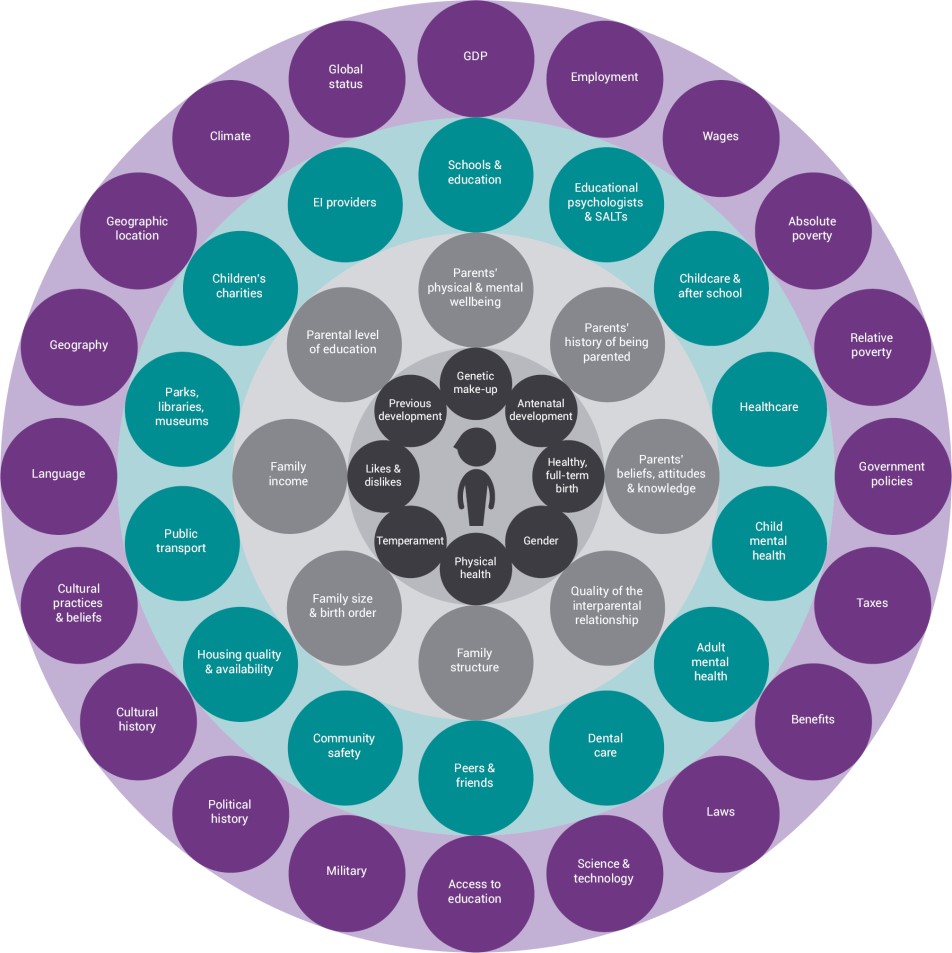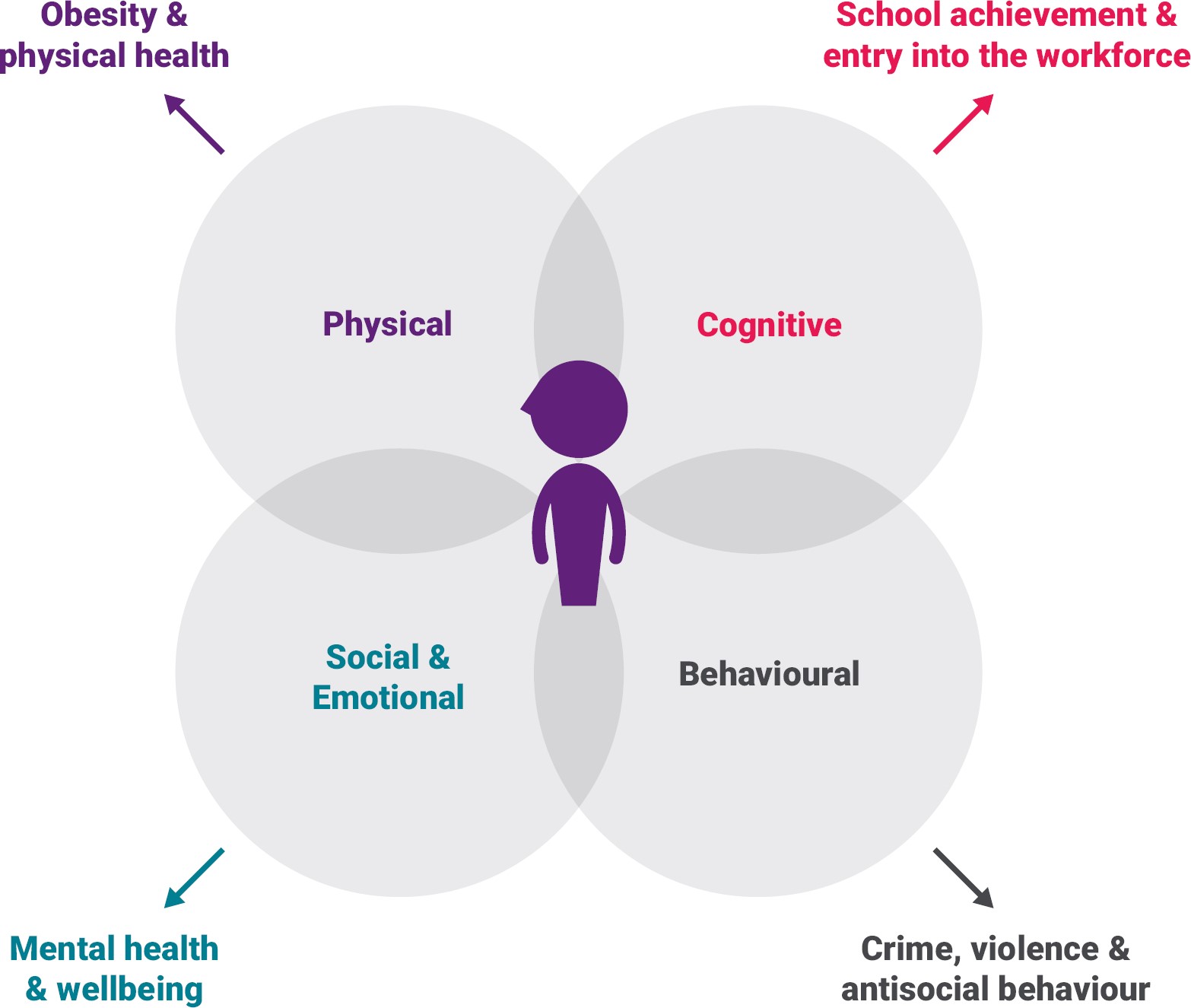
Early intervention refers to the process of identifying children who are at risk of developmental or behavioral problems and providing them with appropriate support and services to address those issues before they become more severe. This can involve a range of interventions, from screening and assessment to targeted interventions such as therapy or educational programs.
Early Intervention For Children At-Risk
Effective early intervention is meant to prevent such problems from occurring or tackle them head-on before things get worse. The intervention strategies also foster a set of personal strengths and skills that will prepare the child for adult life. The delays in at-risk include issues in:
To diagnose these conditions a development assessment is required and once the diagnosis is done an intervention plan can be made. Such plans can address developmental delays and mitigate both disabilities and handicaps. If these plans are introduced early, some developmental milestones can still be achieved.
Scope Of Early Intervention

Some of the key areas where early intervention can be effective include:
Strategies For Early Intervention
Some techniques that can help your at-risk children are:
These strategies aim at strengthening and building skills to acquire learning and they include:
> Using mnemonics devices for memorizing vocabulary
> Color coding to match subject pronouns
> Creating semantic maps
> Organizing ideas for the writing process
> Taking dictation to reinforce spelling, syllabic rules, and pronunciation
This is frequently employed to develop phonemic awareness and some techniques include:
> Developing phonological awareness of every diphthong, sound, and blend
> Learning an alphabet
> Learning to sound out words
> Learning spelling rules
> Learning relationships between letters and sounds
Benefits Of Early Intervention For Children And Families

Some of the noted benefits of early intervention practices involve:
One of the key benefits of early intervention is that it can help identify issues early on before they become more severe and difficult to treat. It can also help prevent more severe issues from developing.
For example, if a child is struggling with language and communication skills, early intervention can provide speech therapy and other interventions to help improve those skills before they become a significant barrier to learning and development.
Another key benefit of early intervention is that it can help improve outcomes for children and families. By providing targeted support and services, early intervention can help children develop the skills and abilities they need to succeed in school and life. This can lead to improved academic performance, better social relationships, and improved overall well-being.
In order to be effective, early intervention programs must be tailored to the specific needs of each child and family. This requires a comprehensive approach that involves screening and assessment, individualized interventions, and ongoing monitoring and evaluation to ensure that the interventions are effective.
Make Learning Fun
Early intervention will allow families and caretakers to support their children in their daily activities. Facilitators who have undergone Online Special Education Courses can identify the conditions correctly and provide accurate information to offer a lot of learning opportunities. They also break learning into small steps to foster greater understanding and retention of information. If you also want to be more than just a teacher and make a difference in the lives of your students, your time is now!
Get In Touch
UK – Registered OfficeAsian College Of Teachers Ltd (UK)
27, Old Gloucester Street, London – WC1N 3AX, UK
UK Toll Free:Â 0-808-189-1203
www.asiancollegeofteachers.co.uk
All SEN Courses are designed, developed and created by Asian College of Teachers Ltd, United Kingdom. These courses are certified by CPD Certification Service UK and endorsed by NCC Education, UK, and Short Courses from CACHE, UK through Laser Learning UK.
Asian College of Teachers (ACT) undertakes a continuous review of its teacher training courses to ensure imparting high quality education. However, there might be circumstances outside of ACT’s control which might affect its stakeholders like if you are planning to teach in a different country, applying for a teaching license, pursuing higher studies or trying to get the certificate approved by the Ministry of Education (MoE) of a particular country then you can do so with the certificate issued by Asian College of Teachers (ACT). However, each country’s Ministry of Education (MoE) or educational bodies set certain standards that are indispensable for the pursuit of higher studies or teaching in schools in that country. So it can be a possibility that you may be able to use the certificate for higher studies or teaching purposes in one country and not in another. Therefore, we strongly recommend that you investigate thoroughly and check with the relevant authorities regarding the acceptance of the certificate issued by us before you enrol on a particular course. ACT strives to offer high-quality education and its certificates can be valuable for various purposes internationally, but still it is crucial for individuals to verify the specific recognition of the certificate in the country they intend to use it, especially for formal education or professional licensing purposes. This approach ensures that the stakeholders make informed decisions regarding their educational and career paths.
© 2025 Asian College of Teachers. All Rights Reserved. Asian College Of Teachers is a trading brand of TTA Training Pvt. Ltd (India) - CIN U80902WB2016PTC215839, Asia Teachers Training Co., Ltd (Thailand) - Registration No. 0105558193360, Asian College Of Teachers Ltd (UK) - Company Number 9939942 & Asian College Of Teachers LLC, (USA) - Federal Tax Identification Number 30-1261596
Designed by kreativewebtech